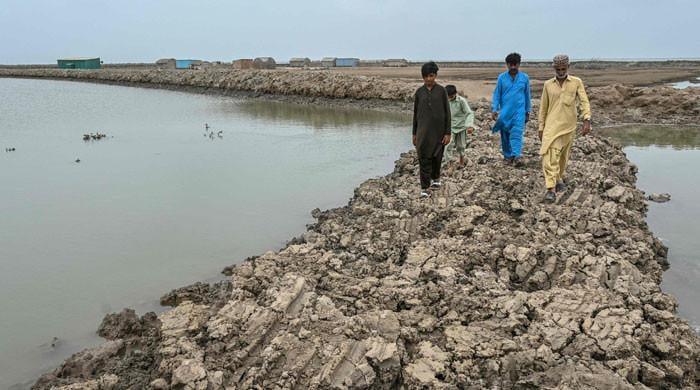Kharo Chan: The salt scabs creak under his feet while Habibullah Khatti walks to his mother’s tomb to say goodbye before his people abandon his people from the dry island in the Indo Delta.
The intrusion of seawater in the Delta, where the Indo River meets the Arabic Sea in the south of the country, has caused the collapse of agricultural and fishing communities.
“Salina water has surrounded us from four sides,” Khatti told AFP From the town of Abdullah Mirbahar in the city of Kharo Chan, about 15 kilometers (9 miles) where the river is emptied in the sea.
When fish stock fell, the 54 -year -old man turned to tailoring until that also became impossible, with only four of the remaining 150 homes. “At night, a spooky silence takes over the area,” he said, while street dogs wandered through the houses of wood and deserted bamboo.
Kharo Chan once understood about 40 villages, but most have disappeared under the increase in sea water. The population of the city fell from 26,000 in 1981 to 11,000 in 2023, according to census data.
Khatti is preparing to transfer her family to the nearby Karachi, the largest city in Pakistan and swelling with economic migrants, even from the Indo Delta.
The Fisherfolk forum of Pakistan, which advocates the fishing communities, estimates that tens of thousands of people have been displaced from Delta’s coastal districts.
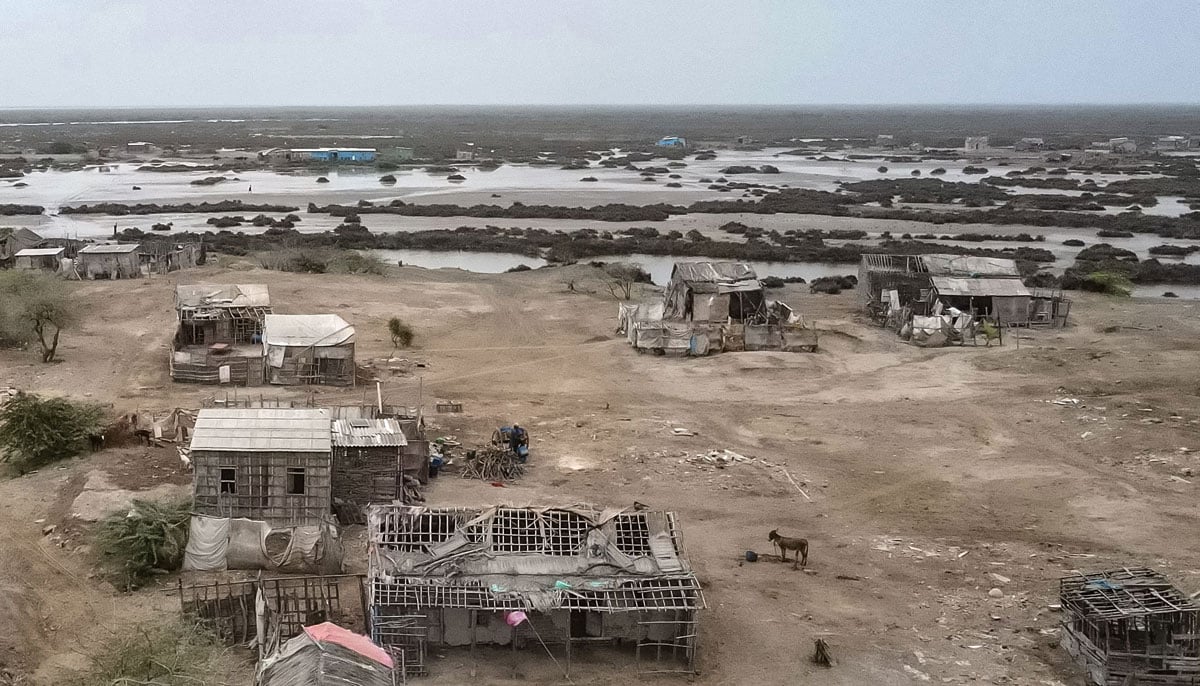
Abandoned houses are shown in one of the towns of the city of Kharo Chan, in the Delta del Indo on June 25, 2025. – AFP
However, more than 1.2 million people have been displaced from the general region of the Delta del Indo in the last two decades, according to a study published in March by the Jinnah Institute, a group of experts led by a former climate change minister.
The water flow downstream in the Delta has decreased by 80% since the 1950s as a result of irrigation channels, hydroelectric dams and the impacts of climate change in the Glacial Founded and snow, according to a 2018 study carried out by the Center for Advanced Studies of the United States of Pakistan in water.
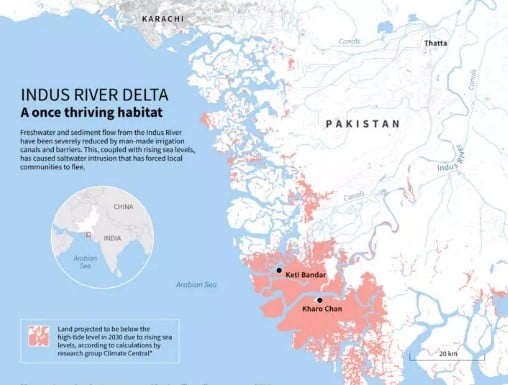
That has led a devastating seawater intrusion.
Water salinity has increased by around 70% since 1990, which makes it impossible to grow crops and severely affecting shrimp and crabs populations.
“The Delta is sinking and reducing,” said Muhammad Ali Anjum, a local WWF conservationist.
Swallowed by the increase in water level
Starting in the Tibet, the Indo River flows through Kashmira before crossing the entire length of Pakistan. The river and its tributaries will water around 80% of the country’s cultivation lands, supporting millions of livelihoods.
The Delta, formed by rich sediments deposited by the river when it meets the sea, was once ideal for agriculture, fishing, mangroves and wildlife.
But more than 16% of fertile lands have become unproductive due to seawater invasion, according to a study by the government agency of the Government in 2019.
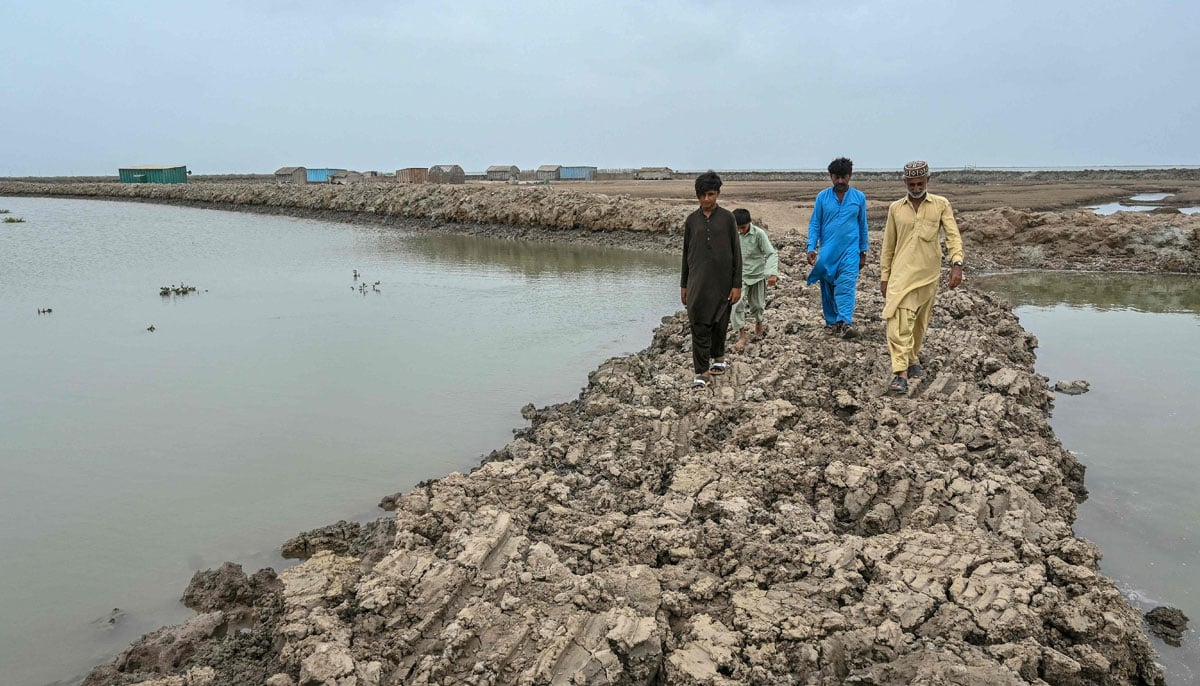
In the city of Keti Bandar, which extends inland from the edge of the water, a white layer of salt crystals covers the ground. The ships carry drinking water from miles away, and the villagers take him home through donkeys.
“Who leaves your homeland voluntarily?” Haji Karam Jat said, whose house was swallowed by the water level elevator.
He rebuilt more inland, anticipating that more families would join him.
“One person only leaves his homeland when he has no choice,” he said AFP.
Loss of land, culture
The British colonial rulers were the first to alter the indoor river course with channels and dams, followed more recently by dozens of hydroelectric projects. Earlier this year, several channel projects were arrested on the Indo River when the farmers protested in the low river areas of the province of Sindh.
To combat the degradation of the Indo River Basin, the Government and the United Nations launched the “Indo Living initiative” in 2021. An intervention focuses on restoring the Delta addressing the salinity of the soil and the protection of agriculture and local ecosystems.
The Sindh government is currently executing its own mangrove restoration project, with the aim of reviving forests that serve as a natural barrier against the intrusion of salt water.
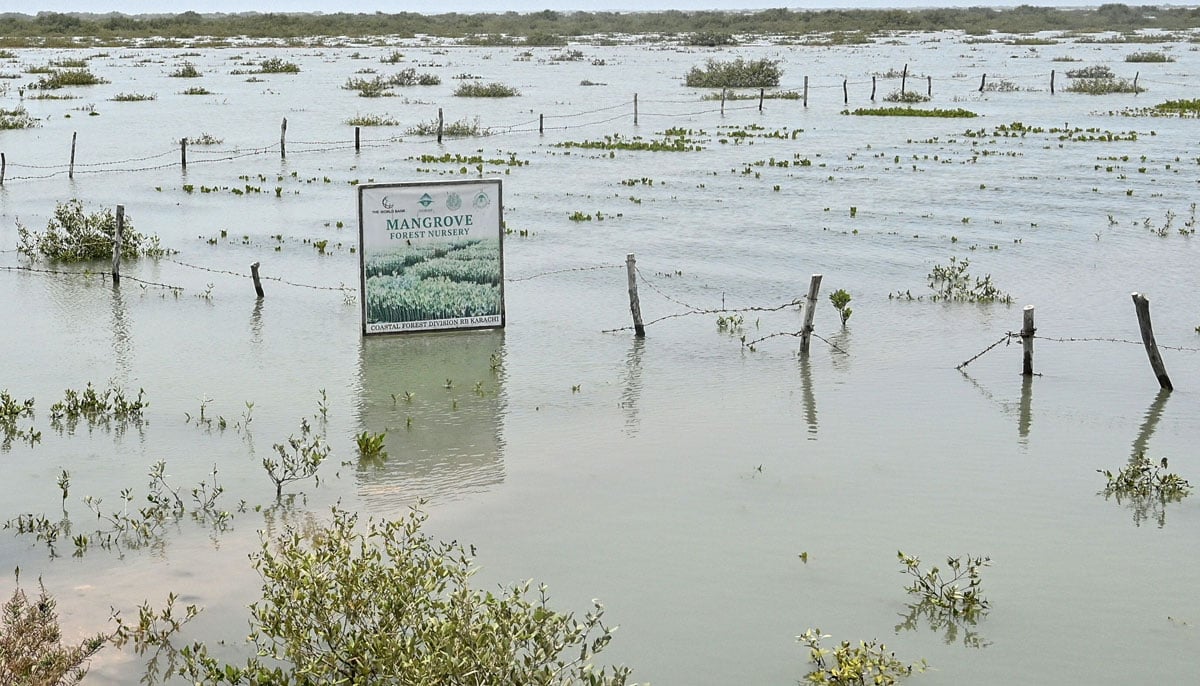
Even when mangroves are restored in some parts of the coast, land hoarding and residential development projects drive cleaning in other areas.
Meanwhile, the Indian neighbor raises an imminent threat to the river and its delta, after revoking a 1960 water treaty with Pakistan that divides control over the rivers of the Indo basin.
He has ever threatened to restore the treaty and build dams upstream, squeezing the flow of water to Pakistan, which has called it “an act of war.”
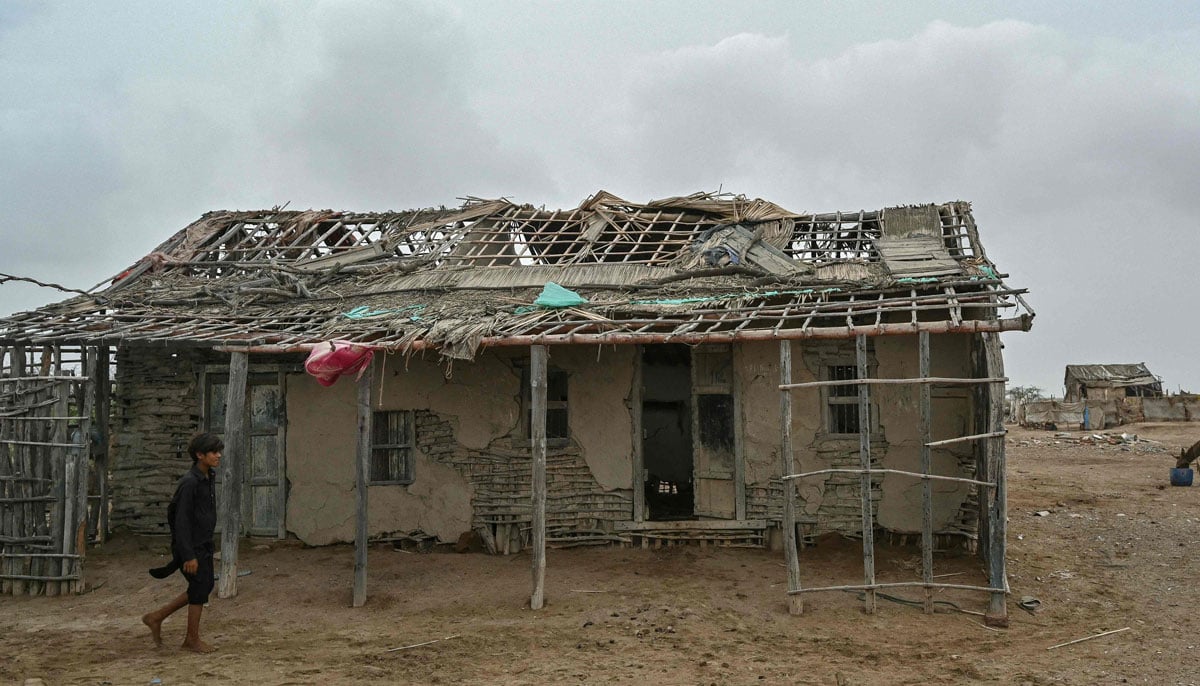
Together with their homes, communities have lost a strongly linked lifestyle in the Delta, said Climate Activist Fatima Majeed, who works with the Pakistan Fisherfolk forum.
The women, in particular, who have sewn networks for generations and have packed the captures of the day, struggle to find work when they migrate to the cities, said Majeed, whose grandfather relocated Kharo Chan’s family on the outskirts of Karachi.
“We have not lost our land, we have lost our culture,” he said.

